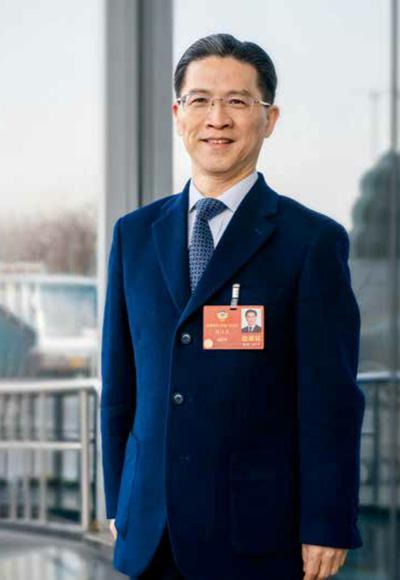Zhou Hanmin China’s Reform Into Deep
2018-06-14byYinXing
by Yin Xing

This year marks the 40th anniversary of Chinas reform and opening up. “Thanks to the reform and opening-up policy, our nation has stood up, grown rich, and become strong,” declared Zhou Hanmin, a member of the standing committee of the National Committee of the Chinese Peoples Political Consultative Conference (CPPCC), vice chairman of the Central Committee of the China National Democratic Construction Association and vice chairman of the Shanghai Municipal Committee of the CPPCC.
Zhou has witnessed Chinas development brought about by the reform and opening up, and great changes have taken place in his life because of the policy. In 1978, the year after China resumed the decade-suspended college entrance examination, Zhou Hanmin, then a worker in a Shanghai hospital, applied to take the exam. He was admitted to Shanghai University of International Business and Economics, and his life changed completely. At the end of the 1980s, Zhou participated in preparatory studies on the Pudong New Areas opening up and related legislative work. Later, Zhou personally or indirectly took part in Pudongs opening up in 1990, the Shanghai World Expo in 2010 and the establishment of the China (Shanghai) Pilot Free Trade Zone (SFTZ) in 2013.“A torchbearer of Chinas reform and opening up, Shanghai undertakes the responsibility to promote the integration of the Yangtze River Delta and the development of the Yangtze River Economic Belt, playing an important role in the countrys economic and social progress,” said Zhou.
In August 2013, the State Council formally approved the establishment of the SFTZ, the first of its kind on the Chinese mainland. According to the Framework Plan for the China (Shanghai) Pilot Free Trade Zone, the SFTZ shoulders important missions of accelerating the transformation of government functions, actively exploring innovation in management modes, promoting trade and investment facilitation, and accumulating new experience for further reform and broader opening up.
In 2017, in the report to the 19th National Congress of the Communist Party of China (CPC), General Secretary Xi Jinping noted that the government will grant more powers to pilot free trade zones to conduct reform and explore the opening of free trade ports. “This gave direction and drive to Chinas pilot free trade zones,” said Zhou. “The core mission of free trade zones is to explore new institutions. As General Secretary Xi said, the planning of free trade ports will follow the highest international standards, with law-based governance, smooth facilitation and a fair, unified and efficient business environment.”
General Secretary Xi stressed that the aspirations of the people to live a better life must always be the focus of the CPCs efforts. In Zhous opinion, this belief has helped reach the broadest consensus of deepening reform in every field and has laid a solid foundation for the success of the countrys reform.
“The great significance of the reform and opening-up policy is improving the living standards of the people,” said Zhou.“Globally, the largest contribution of Chinas reform and opening up is lifting nearly 800 million people out of absolute poverty in only four decades.” Zhou believes that China has yet to finish its reform considering the long transition from escaping poverty to achieving better living standards. He thinks Chinas reform has entered a deep-water zone.
“In the ‘deep-water zone, the greatest challenge is to modernize Chinas system and capacity for governance,” explained Zhou. “Like in the last four decades, the most significant driving force for our future development is reform. From February 26 to 28, 2018, at its third plenary session, the 19th CPC Central Committee announced a structural reform plan of Party and state institutions with focus on modernizing the countrys system and capacity for governance.”
“At this new historical starting point, the best way to commemorate the 40th anniversary of the countrys reform and opening up is to continue further with bold and resolute steps,” added Zhou. “Reform should be endless.”